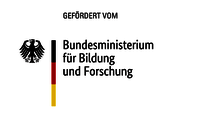Within the framework of the funding program "competence centers for the intelligent use of Big Data", the Federal Ministry for Education and Research funds the research project "ScaDS Dresden/Leipzig Competence Center for Scalable Data Services and Solutions". The research project is intended to run for a period of 4 years and is driven by the partners Dresden University of Technology (TUD), the University of Leipzig (UL), the Max-Planck-Institute for Molecular Cell Biology and Genetics (MPI-CBG) and the Leibniz-Institute of Ecological Urban and Regional Development. The competence center covers thematically important research challenges in data acquisition, handling and utilization of large data sets for a broad spectrum of users.


![[Translate to English:] Leibniz Gemeinschaft](/fileadmin/user_upload/ioer_de/img/logo-leibniz-gemeinschaft.svg)
![[Translate to English:] Dresden concept](/fileadmin/_processed_/2/1/csm_logo-dresden-concept_430c661ad7.png)

